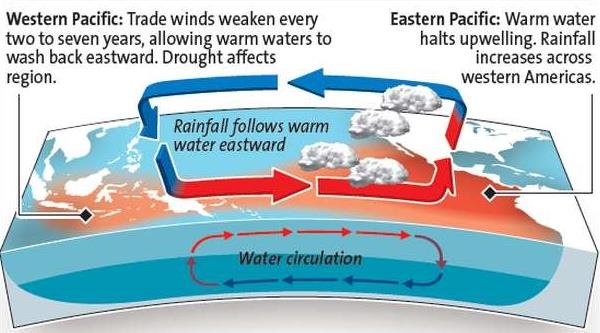In anticipation of the persistent El Niño climate phenomenon, characterised by above-average Sea Surface Temperatures in the Pacific Ocean, Zambia braces for a significant impact on the upcoming 2023/2024 rainfall pattern.
The Media Network Action on Climate Change (MENACC) has underscored the need for the Ministry of Agriculture to enhance Agricultural Extension Services nationwide. This proactive measure aims to mitigate potential input losses, damages, and reduced food production attributed to climate change-induced variables such as floods, droughts, high temperatures, diseases, and pest outbreaks.
MENACC Executive Coordinator Kennedy Phiri has emphasised the urgency of fortifying support for farmers, particularly in light of the Zambia Meteorological Department’s forecast for the 2023/2024 rainy season. The forecast signals a likelihood of drought due to reduced rainfall activities, linked to the impending El Niño weather phenomenon. It predicts normal to below normal rainfall in many regions, featuring prolonged dry spells and episodes of heavy rainfall leading to potential floods.
Mr. Phiri stresses the critical role of extension officers in guiding farmers, especially in regions expected to receive below normal rainfall. He highlights the risk of substantial quantities of distributed inputs going to waste if farmers proceed to plant without adequate guidance.
In this context, he urges the Ministry of Agriculture to intensify sensitisation efforts among small-scale farmers, ensuring crucial information reaches communities to prevent significant losses of subsidised inputs, which were procured at a substantial cost to the government, and to conserve farmers’ time, effort, and energy.
Looking ahead, Mr. Phiri calls for transparent reporting from the Ministry of Agriculture on the annual loss of inputs under the Farmer Input Support Program (FISP) attributable to climate change. This information, encompassing both quantity and monetary value of inputs lost due to climate-related factors such as washed-away crops and failed harvests, is essential for informed decision-making in addressing climate-related loss and damage within the agriculture sector.

